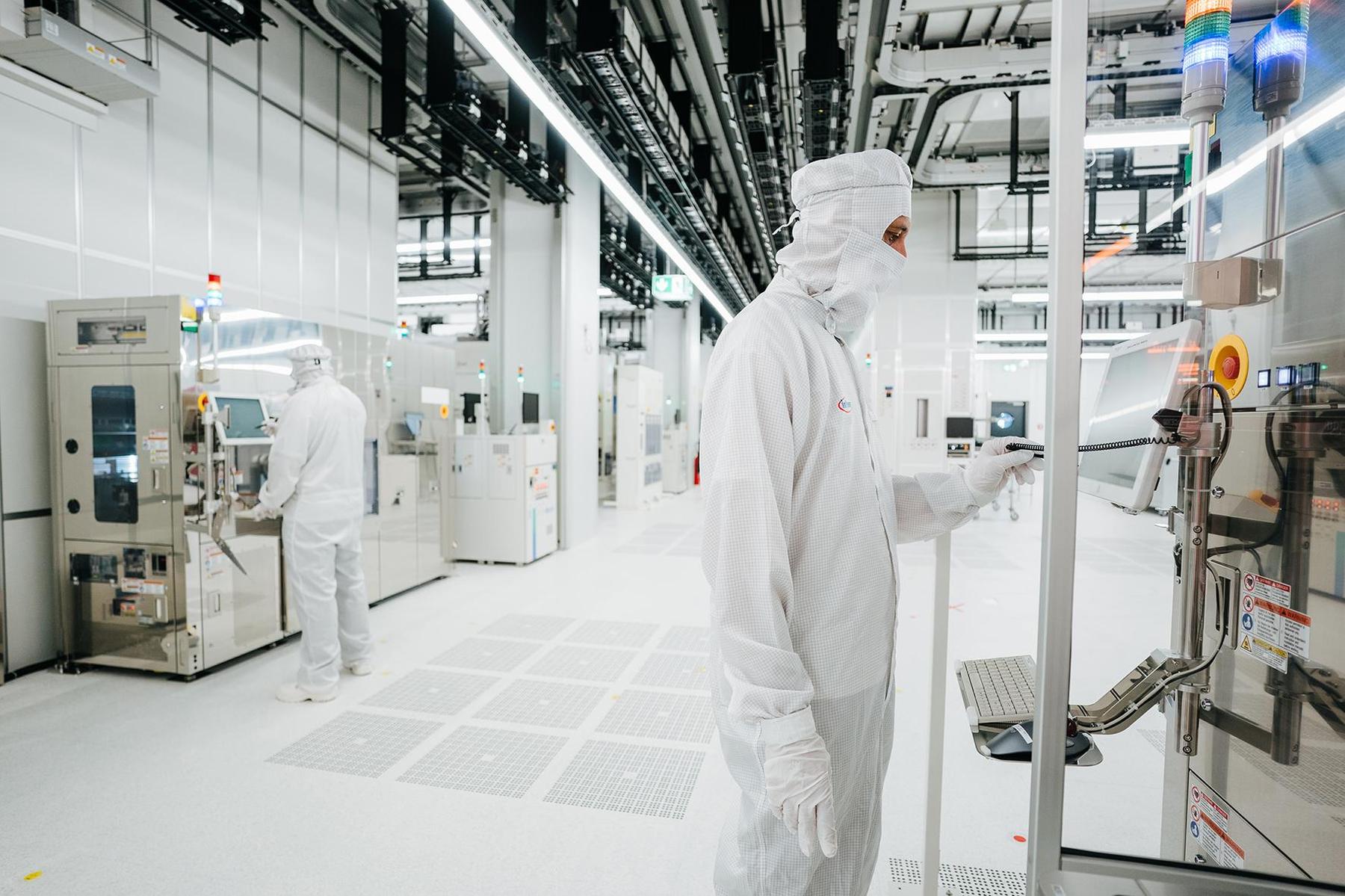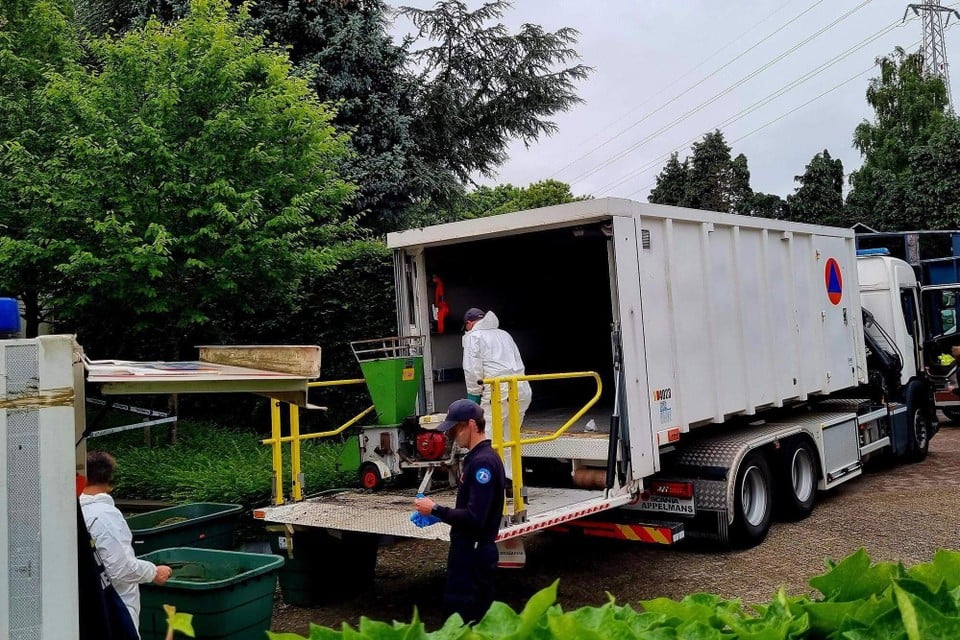In The Hague, the low vaccination rate is challenged with an AI-hologram that answers questions about vaccinations
:format(webp)/s3/static.nrc.nl/images/gn4/stripped/data111898278-46af73.jpg)
A little more than a year ago, the municipality of The Hague raised the alarm: in every district of the city, the vaccination rate had fallen below the critical limit of 90 percent. There were already some neighborhoods where the enthusiasm for vaccinations was low – in the Schilderswijk and Transvaal the vaccination rate fell for mumps, measles and red dog below 50 percent. But now it went wrong everywhere. Also in the Zeeheldenkwartier, where people with a relatively high level of education and income live.
In the summer of 2024, the National Institute for Public Health and the Environment (RIVM) also found that the vaccination rate in The Hague had fallen for the fourth year in a row. There was then a measles outbreak, and now again. The RIVM reported this week that the Netherlands now, as far as is known, has 158 cases of measles.
Alderman Hilbert Bredemeijer (CDA, education, youth, sports and services) calls it a « life -threatening situation. » He was annoyed by the way in which the ministry emphasized the national percentages that were low in 2024, but did not fall so strongly among young children. « While we have already dropped through the ice in the big cities. It is not going to be ‘nice’ here, things are going badly. » The vaccination councils are also low in Amsterdam, Rotterdam and Utrecht.
Community centers
In the past six months, the municipality of The Hague therefore decided to carry out a whole package of plans to boost the vaccination rate at the same time. For example, there is a test in which women a maternal whooping cough prick (a vaccination that receives pregnant women for 22 weeks, and who protects the woman and the baby against whooping cough) could immediately get their midwifery practice and no longer had to make an appointment themselves.
In addition, punctures were put in a secondary school and information evenings about vaccination organized. A research group was set up that studies vaccination behavior, and there was an AI-controlled hologram in the town hall to answer questions about vaccinations.
Posters were spread throughout the city on which groceries were like: ‘Babies are the most vulnerable for illness’. Whoever walked down the street felt that The Hague has a problem with vaccination. A conscious choice. « I thought we should be constantly present in the streets, » says Bredemeijer.
Read also
GPs talk to parents in the Biblebelt about the dangers of whooping cough: « God decides whether my child gets sick »
Intervene
The number of maternal whooping cough vaccinations increased by 14 percent throughout the city: from 2,993 poking piercing in 2023 to 3,412 in 2024. There was no significant birth rates. The figure is certainly influenced by the intervention of the municipality, the alderman thinks. In the test, with five midwifery practices in the neighborhoods where the vaccination rate is the lowest, 107 punctures were set in a few months, a quarter of the rise.
Intentions against mumps, measles and red dog (BMR1) and diphtheria, whooping cough, tetanus and polio (DKTP) were also put more often: 4 percent and 9 percent more. Whether that increase can be traced to the programs of the past year does not dare to say Alderman Bredemeijer before it has been investigated.
It’s not going to be ‘nice’ here, it goes downright bad
The GGD Haaglanden speaks of ‘positive signals’ and a ‘first indication’ that the Hague plans have an effect. It is worrying: the number of children who later, if they are already in school, get a repeat prick, is still falling.
Jeanne-Marie Hament, program manager of the RIVM national vaccination program, finds it a ‘striking outcome’. « If you have had falling participation for years, and know how to turn the tide, that’s good. » Although she emphasizes that an increase in the number of vaccinations does not immediately translate into a higher vaccination rate. The RIVM comes again with numbers in the summer.
Other large cities have also introduced a more neighborhood -oriented approach due to the greatly decreased vaccination rate. In Rotterdam, for example, information on daycare centers are being organized. And in Amsterdam – where it is now possible in the neighborhoods with the lowest vaccination councils without making an appointment – a slight increase in vaccination rates was also seen earlier this year.
Concrete
The test in the five midwifery practices showed the biggest difference, says Alderman Bredemeijer. There were concrete changes, people were vaccinated on the spot. According to the National Vaccination Program, women get a whooping cough vaccine when they are 22 weeks pregnant. « That goes pretty passive: they get a flyer from their midwife with which the government tries to convince them. Then they have to make an appointment for another moment, in a different place. Bizarre that we do it that way, we make it complicated. So we thought: we can also offer it if they are with the midwife, who they also trust. »
In the Schilderswijk, an midwife who comes from the same region works as many labor migrants from the neighborhood. « Women with the same background trust her easier than such a flyer from the RIVM. »
What remains worrying: the number of children who later, when they are in school, get a repeat prick, is still falling
The municipality also offered vaccinations at high school De Einder in Transvaal: more than fifty students were punctured in one afternoon. Parents were informed in advance and a walk -in evening was organized where people could ask questions. « We have to be at school if we want to vaccinate more, » says Bredemeijer. « There are also the biggest consequences in an outbreak. »
But a letter to the council about the vaccination initiatives states that « not all schools » want to cooperate in something like a shot afternoon. The subject is sensitive. « And there are so many subjects that are sensitive: discrimination, anti -Semitism. Schools have a hard time with it, » says the alderman. « We have made us have been driven apart in the field of vaccination after Corona. We have to go back. It is a big responsibility to give to schools, but we help them with that. »
Only the poster campaign in the streets of The Hague has yielded little, the municipality writes in an evaluation: 90 percent of the people who saw such a poster did not change thought about vaccinating children. « It is clear that something so impersonal does not work, » says Bredemeijer. For him a confirmation of the other results of the municipal project: only a personal conversation really helps.
Read also
‘Wellness-Right’, people with prick anxiety and religious: Group of unvaccinated people is becoming increasingly diverse

:format(webp)/s3/static.nrc.nl/bvhw/files/2024/03/data113281695-12c24d.jpg)
:format(webp)/s3/static.nrc.nl/wp-content/uploads/2025/06/05163439/data133217982-f902a2.jpg)
/s3/static.nrc.nl/wp-content/uploads/2025/06/06205808/web-0606BINspermadonatie.jpg)
/s3/static.nrc.nl/images/gn4/data133317775-d0126f.jpg)




